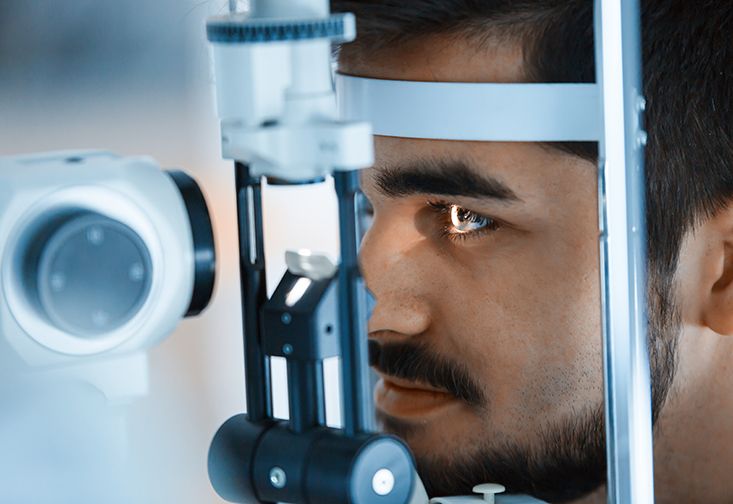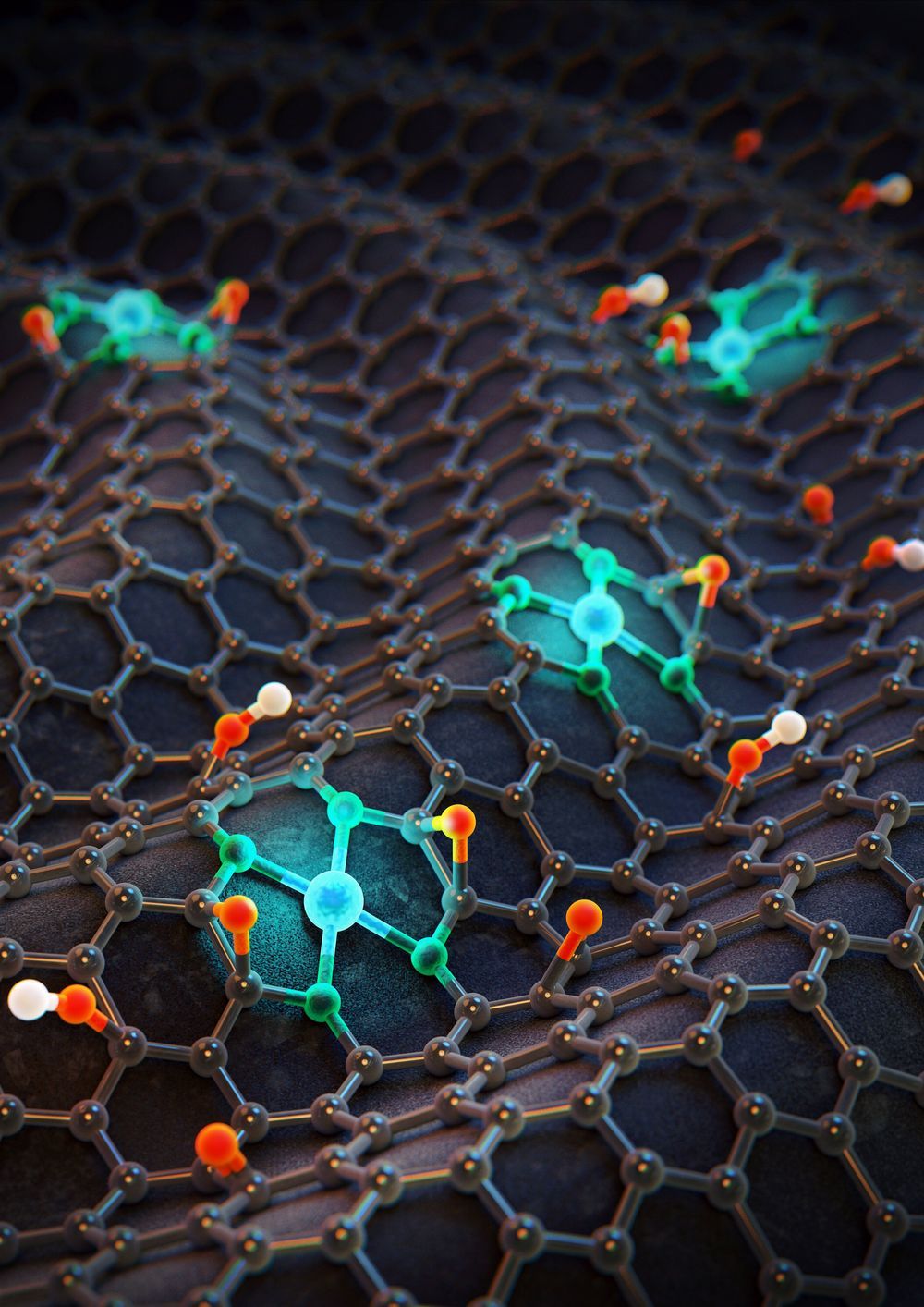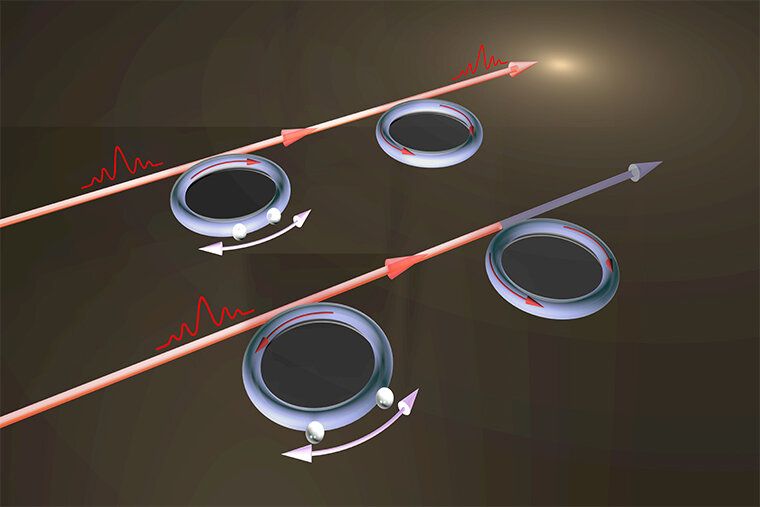The parasite Toxoplasma gondii turns mice’s fear of cats into curiosity. The parasite emboldens mice in other situations too, a new study finds.
Firmafotografen/getty images plus.



Batteries are the key to decarboni z ing both transport and the grid, but today’s technology is still a long way from living up to this promise. IBM seems to have decided its computing chops are the key to solving the problem.
Lithium-ion batteries are still the gold standard technology in this field, and they’ve come a long way; 10 years ago they could just about get your iPod through the day, today they can power high-performance cars over hundreds of miles.
But if we want to reach a point w h ere batteries can outperform gasoline or store huge amounts of solar energy, we need some breakthroughs. So IBM has teamed up with Mercedes-Benz and its parent company Daimler to develop new batteries that could match up to our needs.

https://www.usf.edu/…/neuroscientists-discover-brain-pressu…
If you found this article interesting please like and share it from our Facebook page: https://m.facebook.com/story.php?story_fbid=511500699478279&id=383136302314720
Researchers at the University of South Florida have discovered a novel feedback pathway from the brain to the eye that modulates eye pressure – a significant advancement in the effort to diagnose and treat glaucoma. Glaucoma is associated with increased pressure in the eye due to a reduce ability of the eye to maintain proper fluid drainage. The heightened pressure applies mechanical strain to the optic nerve as the nerve exits the eye, resulting in vision loss and potential blindness.
It has long been hypothesized that brain pressure might also play a role in glaucoma because the amount of strain on the optic nerve depends not just on eye pressure, but the difference in pressure between the eye and brain. The groundbreaking study published in the Journal of Physiology shows, for the first time, that eye and brain pressure are physiologically connected. The neuroscientists came to this conclusion by altering brain pressure in animal models and noting changes in the fluid drainage properties of the eye that could be blocked by chemicals that eliminate feedback signals from the brain. Interestingly, the eye’s ability to clear fluid changed in a manner that restored a healthy pressure difference across the optic nerve.
“The drainage control system may service to protect the optic nerve from swings in eye or brain pressure,” said Chris Passaglia, PhD, professor in the USF Department of Medical Engineering. “Its discovery offers a new target for glaucoma treatment, wherein the modulatory mechanisms of the system might be exploited to help lower eye pressure and impede disease progression in glaucoma patients.”
Some have called for caution with regards to China’s digital currency, with the urgency to rush through Beijing’s own plan now lessened as Libra, which is perceived by Beijing as a major threat to China’s financial sovereignty, faces major regulatory obstacles worldwide.
The People’s Bank of China (PBOC) stepped up its plan to launch a sovereign digital currency in response to Facebook’s Libra digital currency.



IBS scientists and their colleagues have recently report an ultimate electrocatalyst that addresses all of the issues that trouble H2O2 production. This new catalyst comprising the optimal Co-N4 molecules incorporated in nitrogen-doped graphene, Co1-NG(O), exhibits a record-high electrocatalytic reactivity, producing up to 8 times higher than the amount of H2O2 that can be generated from rather expensive noble metal-based electrocatalysts.
Just as we take a shower to wash away dirt and other particles, semiconductors also require a cleaning process. However, its cleaning goes to extremes to ensure even trace contaminants “leave no trace.” After all the chip fabrication materials are applied to a silicon wafer, a strict cleaning process is taken to remove residual particles. If this high-purity cleaning and particle-removal step goes wrong, electrical connections in the chip are likely to suffer from it. With ever-miniaturized gadgets on the market, the purity standards of the electronics industry reach a level equivalent to finding a needle in a desert.
That explains why hydrogen peroxide (H2O2), a major electronic cleaning chemical, is one of the most valuable chemical feedstocks that underpins the chip-making industry. Despite the ever-growing importance of H2O2, its industry has been left with an energy-intensive and multi-step method known as the anthraquinone process. This is an environmentally unfriendly process which involves the hydrogenation step using expensive palladium catalysts. Alternatively, H2O2 can be synthesized directly from H2 and O2 gas, although the reactivity is still very poor and it requires high pressure. Another eco-friendly method is to electrochemically reduce oxygen to H2O2 a via 2-electron pathway. Recently, noble metal-based electrocatalysts (for example, Au-Pd, Pt-Hg, and Pd-Hg) have been demonstrated to show H2O2 productivity although such expensive investments have seen low returns that fail to meet the scalable industry needs.

A team of physicists has mapped how electron energies vary from region to region in a particular quantum state with unprecedented clarity. This understanding reveals an underlying mechanism by which electrons influence one another, termed quantum “hybridization,” that had been invisible in previous experiments.
The findings, the work of scientists at New York University, the Lawrence Berkeley National Laboratory, Rutgers University, and MIT, are reported in the journal Nature Physics.
“This sort of relationship is essential to understanding a quantum electron system—and the foundation of all movement—but had often been studied from a theoretical standpoint and not thought of as observable through experiments,” explains Andrew Wray, an assistant professor in NYU’s Department of Physics and one of the paper’s co-authors. “Remarkably, this work reveals a diversity of energetic environments inside the same material, allowing for comparisons that let us spot how electrons shift between states.”

In the quantum realm, under some circumstances and with the right interference patterns, light can pass through opaque media.
This feature of light is more than a mathematical trick; optical quantum memory, optical storage and other systems that depend on interactions of just a few photons at a time rely on the process, called electromagnetically induced transparency, also known as EIT.
Because of its usefulness in existing and emerging quantum and optical technologies, researchers are interested in the ability to manipulate EIT without the introduction of an outside influence, such as additional photons that could perturb the already delicate system. Now, researchers at the McKelvey School of Engineering at Washington University in St. Louis have devised a fully contained optical resonator system that can be used to turn transparency on and off, allowing for a measure of control that has implications across a wide variety of applications.